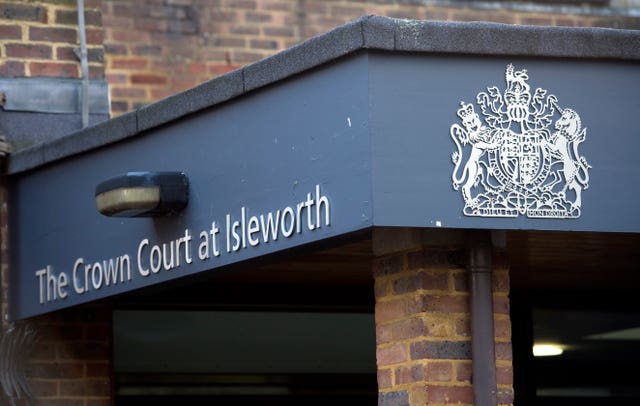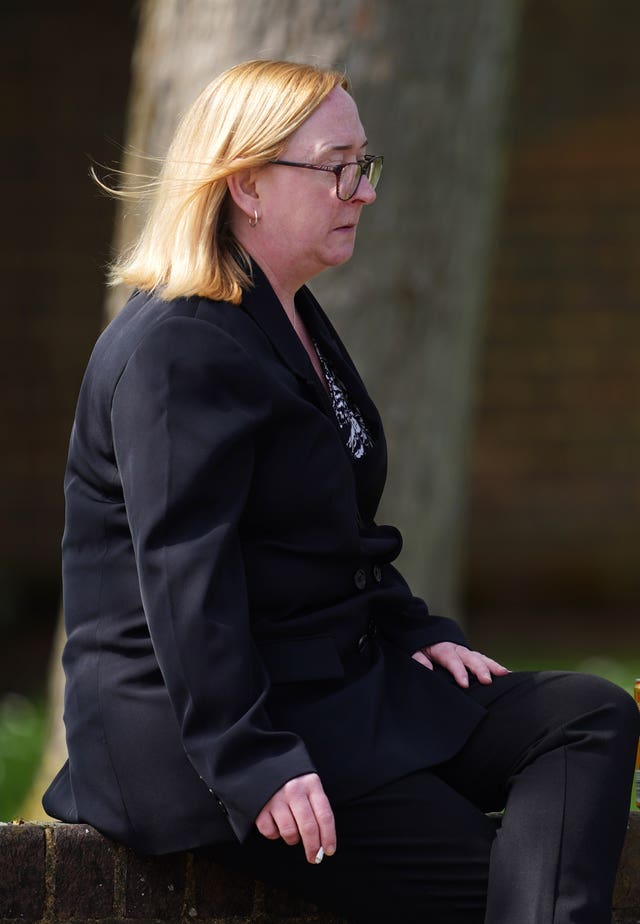Abortion case prompts calls for legal reform after woman’s four-year ordeal
The investigation has been described by MPs as ‘cruel and unnecessary’ and a ‘shocking wake-up call’ of the need for a change in the law.

Healthcare professionals and MPs have renewed calls for law reform after a woman was subjected to the “trauma” of a trial having been accused of an illegal abortion.
Nicola Packer was “persecuted” for a “tragic accident”, her friend said after a jury found the 45-year-old not guilty on Thursday.
Ms Packer cried and wiped her eyes with a tissue after being acquitted at Isleworth Crown Court in south-west London, of “unlawfully administering to herself a poison or other noxious thing” with the “intent to procure a miscarriage”.

The investigation has been described by MPs as “cruel and unnecessary” and a “shocking wake up call” of the need for a change in the law.
The Royal College of Obstetricians and Gynaecologists (Rcog) said the trial showed “just how outdated and harmful” current abortion law is as they too backed calls for reform.
Ms Packer took prescribed abortion medicine when she was around 26 weeks pregnant during the second coronavirus lockdown, her trial heard.
The legal limit for taking medication at home for an abortion is 10 weeks.
Jurors heard she took medications mifepristone and misoprostol at home in November 2020 and later brought the foetus to Chelsea and Westminster Hospital in a backpack.
Prosecutors had alleged that Ms Packer knew she had been pregnant for more than 10 weeks, but through tears she told jurors this was not the case.
Recalling her “shock” and “surprise” at being pregnant, she told the jury of nine women and three men: “If I had known I was that far along I wouldn’t have done it.”
She added: “I wouldn’t have put the baby or myself through it.”
Abortion is legal in England and Wales with an authorised provider up to 24 weeks, with very limited circumstances allowing one after this time, such as when the mother’s life is at risk or the child would be born with a severe disability.
The two-week trial faced by Ms Packer was the culmination of a “terrifying” and traumatic four-and-a-half years, her friend Helle Tumbridge told the PA news agency.
Ms Tumbridge said: “It’s honestly felt like she’s been persecuted for four and a half years for a tragic accident and the trauma that she’s had to carry every single day is unimaginable.”
She said she and Ms Packer believe that “until the law has changed and abortion is decriminalised, then women are going to remain second-class citizens in this country”.
It is expected an amendment could be published next week to the Crime and Policing Bill, by a group led by Labour MP Stella Creasy, to not only decriminalise abortion but to “lock in” the right of someone to have one and protect those who help them.
Ms Creasy said the law must be changed so that “the right to choose is a human right”, ensuring no repeat of “such awful cases and victimisation of vulnerable women again”.
Fellow Labour MP Tonia Antoniazzi, who went to court to lend her support, branded it “completely unacceptable” that Ms Packer was “forced to endure the indignity and turmoil of a trial”.
She said: “Nicola’s experience, in her own words, includes being taken from her hospital bed to a police cell, denied timely access to essential medical care, and spending every penny she had on lawyers defending her case.
“This is utterly deplorable, and it is not justice. I do not see how this law can be defended any longer.”

Rcog president Dr Ranee Thakar said the college had joined with healthcare professionals and experts “from over 30 other medical, legal and public health bodies” to call on Parliament to “take urgent action to protect women’s essential reproductive rights and stop these criminal proceedings”.
Ms Packer did not discover she was pregnant until she took a test on November 2 2020, the court heard.
She took abortion medication on November 6 and went to hospital the following day, having passed a foetus into the toilet, her trial was told.
Jurors heard she spent the night of November 7 in hospital and was arrested by police the next day.
Jurors deliberated for more than six hours to reach their unanimous verdict of not guilty.
The Crown Prosecution Service said its prosecutors “exercise the greatest care” when considering “traumatic cases” such as this one.
They said they “recognise the profound strength of feeling these cases evoke, but have a duty to apply laws passed by Parliament fairly and impartially”.
The Government said any changes to abortion laws in the UK are “a matter of conscience for parliamentarians rather than the Government”.
“All women have access to safe and legal abortions on the NHS,” a Government spokesperson said.
“We recognise that this is an extremely sensitive issue, and there are strongly held views on all sides of the discussion.
“That is why, by longstanding convention, any change to the law in this area would be a matter of conscience for parliamentarians rather than the Government.
“Decisions to prosecute, within existing legislation, are for the CPS and are incredibly rare.”





